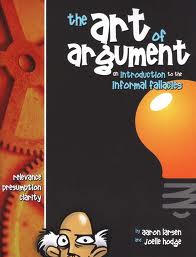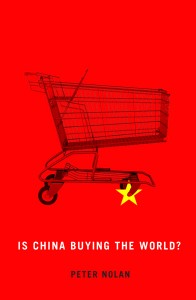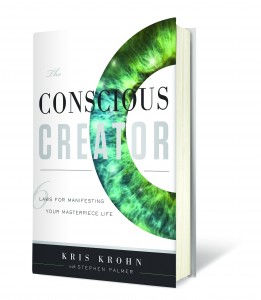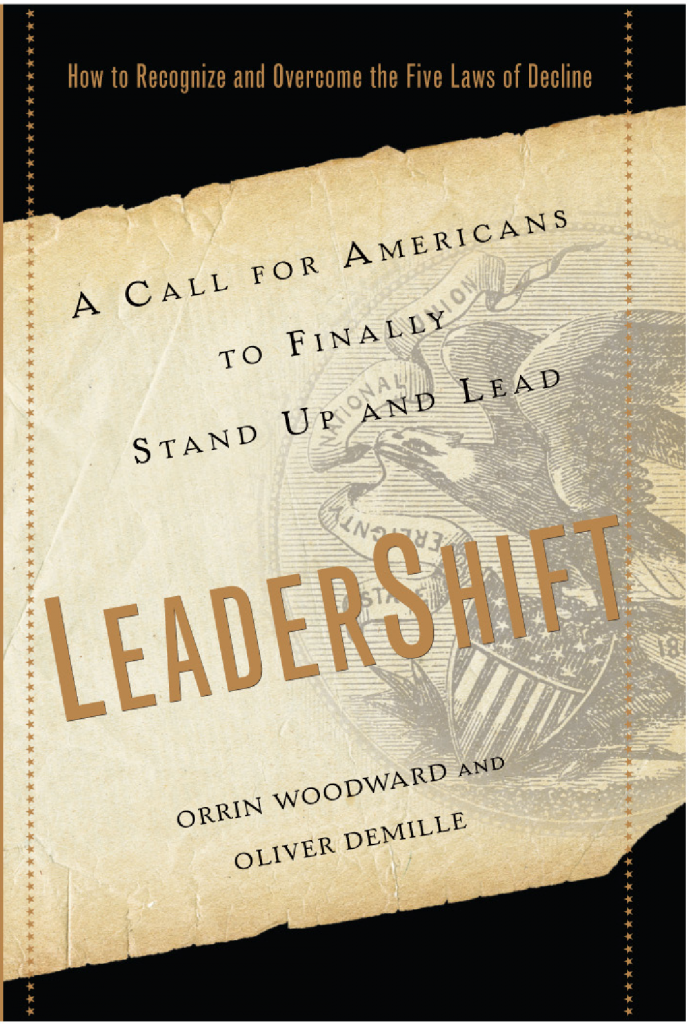The Creativity Quotient
May 22nd, 2013 // 4:11 pm @ Oliver DeMille
 I recently learned about the Creativity Quotient (CQ) from an article by bestselling author Roy H. Williams.
I recently learned about the Creativity Quotient (CQ) from an article by bestselling author Roy H. Williams.
I’ve long been a fan of Williams’s Wizard Academy and his books, especially Wizard of Ads and Free the Beagle.
The Creativity Quotient provides a whole new level of analyzing education, and more people need to understand it.
As Williams put it: “All across America, our 2nd graders score higher on CQ tests than our high schoolers. Evidently, compliance and conformity come at a price. Children starting school this year will retire in 2072…. CQ is 3 times more reliable as an indicator of career success than IQ.”
This is a serious issue for a nation that is losing its leadership edge in the world—precisely because we don’t effectively teach innovation in most of our schools.
CQ measures four types of learning and thinking:
Fluency. This measures, according to Williams, “The total number of interpretable, meaningful, and relevant ideas developed in response to the stimulus.”
Flexibility. “The number of different categories of relevant responses.”
Originality. “The statistical rarity of the responses.”
Elaboration. “The amount of detail in the responses.”
Together these offer a profound, and effective, way of measuring how much a student has actually learned—and to what extent he or she is able to apply valuable knowledge.
This is a much more effective gauge of learning than IQ (Intelligent Quotient) or even the more current EQ (Emotional Intelligence).
Our nation needs this way of scrutinizing education.
The most recent educational trend, at least in the public school system, is known as “accountability,” but this has followed the pattern of Education 2000 and No Child Left Behind, meaning that it emphasizes conformity, rote learning, and institutional compliance rather than truly quality learning.
In contrast, CQ provides an objective measurement tool that can really get to the heart of great education.
If students consistently increase their fluency, flexibility, originality and elaboration skills in a certain school, classroom or home, the educational system there is clearly working.
If not, something needs to be improved.
If we applied this to all public and private schools, as well as higher education, we’d see the need to make real changes at almost all levels of schooling.
While all great education is ultimately individualized, CQ is the best institutionalized measure I’ve seen—because it seeks and measures objectives that actually have everything to do with quality education.
It’s about time.
In a world where nearly every institutional measure, including so-called “accountability,” has to do with benefitting the educational bureaucracy and justifying the status quo (especially current budgets), CQ can genuinely be used to improve the education of future leaders.
Whether this will catch on in any significant way remains to be seen, but most likely it will only be widely used in the non-traditional education sector, from cutting-edge charter schools and Montessori programs to home schools and upstart private schools (what Daniel Coyle has called “chicken-wire Harvards”).
I suppose it shouldn’t surprise anyone that schools focused on innovation are usually promoted by entrepreneurs and innovators rather than by the educational establishment.
Parents, teachers and educators who are genuinely interested in great education—more than trying to impress the declining but powerful educational bureaucracy—will find that CQ is a valuable tool.
Indeed, it was foreshadowed by bestselling futurist Alvin Toffler who wrote in Revolutionary Wealth that truly successful schools will replace rote memorization and a culture of intellectual conformity with creative thinking, personalized learning plans and individual mentoring.
Another way to say this is simply that great education is based on the principle of “Inspire, not Require,” as outlined in A Thomas Jefferson Education.
To summarize this view: Our children have genius inside, and the real purpose of education is to help them detect, develop and use their inner genius to serve and improve the world.
Most schools aren’t pursuing this fundamental goal of education any more, but parents, teachers and educators who really care can make sure that such learning is offered to the students they work with.
The 7 Keys of Thomas Jefferson Education outline how to do this.
This may seem idealistic to some people, but education is by definition concerned with ideals.
In fact, if anything, we need a lot more idealism in our educational system.
We need a serious return to innovation—the future of our nation and economy literally depends on it.
For those who are professional educators, either as teachers or administrators (or who have friends who are), I hope they’ll study and pass along the emerging ideals of CQ.
***********************************
 Oliver DeMille is the chairman of the Center for Social Leadership and co-creator of Thomas Jefferson Education.
Oliver DeMille is the chairman of the Center for Social Leadership and co-creator of Thomas Jefferson Education.
He is the author of A Thomas Jefferson Education: Teaching a Generation of Leaders for the 21st Century, and The Coming Aristocracy: Education & the Future of Freedom.
Oliver is dedicated to promoting freedom through leadership education. He and his wife Rachel are raising their eight children in Cedar City, Utah.
Category : Blog &Book Reviews &Education &Family &Featured &Leadership
How to Get More out of What You Read
March 13th, 2013 // 11:37 am @ Oliver DeMille
Two Books Reviewed by Oliver DeMille
 People often ask me if I’m going to write a book called Thomas Jefferson Education for Adults.
People often ask me if I’m going to write a book called Thomas Jefferson Education for Adults.
They usually say this after reading my books A Thomas Jefferson Education or A Thomas Jefferson Education for Teens, or both.
They get excited about getting a truly great education, not settling for anything less than the highest quality of learning for themselves and their children, and they wonder how to really get that kind of education themselves.
My answer is always, “Start reading the classics.”
When people follow this suggestion, many of them soon realize they’re not getting as much out of their reading as some people seem to.
When they ask how they can get more from their reading, I frequently tell them to study the logical fallacies.
Too many classrooms and schools today teach students what to think rather than how to think, and even many professional and graduate schools focus on when to think.
Teaching students how to think (deeply, broadly, creatively, innovatively, etc.) seems to be a lost art in too much of our modern educational system.
Two books on fallacies are an excellent response: The Art of Argument by Aaron Larsen, Joelle Hodge, and Chris Perrin, and Joseph Spider and the Fallacy Farm by David Grant.
Read these books together, since the first is an excellent workshop on how to think and the second is a fun story that will pull in younger students.
These books not only teach readers how to think, they inspire them to engage thinking.
In short, to think.
A lot.
Specifically, these two books teach a number of fallacies of thinking—in an interesting and effective way.
I highly recommend them for any youth, parent and teacher who wants to boost their students’ thinking ability.
In fact, both books are a great read for any adult.
When people know the fallacies, they automatically start thinking more deeply and they get a lot more out of everything they read—especially the classics.
So if you’re reading important books and want to significantly increase your rate of learning from them, check out these two books.
It’ll make a huge difference for your students and, even more importantly, for you.
***********************************
 Oliver DeMille is the chairman of the Center for Social Leadership and co-creator of Thomas Jefferson Education.
Oliver DeMille is the chairman of the Center for Social Leadership and co-creator of Thomas Jefferson Education.
He is the author of A Thomas Jefferson Education: Teaching a Generation of Leaders for the 21st Century, and The Coming Aristocracy: Education & the Future of Freedom.
Oliver is dedicated to promoting freedom through leadership education. He and his wife Rachel are raising their eight children in Cedar City, Utah.
Category : Blog &Book Reviews &Education &Featured
Is China Really a Threat?
March 11th, 2013 // 1:01 pm @ Oliver DeMille
 I try to read most new books on China, because I think the growth of China on the world stage will continue for some time and eventually conflict with America’s interests.
I try to read most new books on China, because I think the growth of China on the world stage will continue for some time and eventually conflict with America’s interests.
Whether the conflict turns to cooperation or serious difficulty remains to be seen, but keeping abreast of what is happening in China is essential for today’s leaders.
A new book, Is China Buying the World? by Peter Nolan, is an interesting addition to the field and adds several key ideas to the dialogue.
First, it makes the case that no, China is not buying the world any more than Japan bought it in the 1980s (despite widespread fears that this was occurring).
Second, however, China is certainly growing economically and in world influence.
Chinese firms have purchased ownership in a number of companies around the advanced world, as well as tying up access to a lot of natural resources in the developing world.
And numerous multi-national companies have heavily invested in China.
This growth will likely continue, and even expand.
Third, China’s major challenge is restricted access to oil and energy.
As it grows, its thirst for energy will continue to increase and drive its international business expansion.
Fourth, China wants to be a much bigger player on the world scene, and it is following a specific strategy for global influence.
This strategy includes major investments in two key sectors of the world economy, banking and the aerospace industry.
Chinese leaders hope that together, these things—increased investment in the developing world, increased ownership of international resources especially oil, growing global investment in China, increased ownership in multi-national companies, major growth of Chinese influence in the banking and aerospace sectors—will significantly strengthen China’s world role.
Fifth, advances in the aerospace industry are significant because of the close ties between military and business technologies and projects.
As China increases its role in this endeavor, along with banking, it becomes more powerful economically, technologically and, if it chooses, militarily.
This book is a detailed and important read for anyone who cares about the future of the big powers in world relations.
More to the point, more people need to read and think more about the specific issues currently at play in China’s growth.
***********************************
 Oliver DeMille is the chairman of the Center for Social Leadership and co-creator of Thomas Jefferson Education.
Oliver DeMille is the chairman of the Center for Social Leadership and co-creator of Thomas Jefferson Education.
He is the author of A Thomas Jefferson Education: Teaching a Generation of Leaders for the 21st Century, and The Coming Aristocracy: Education & the Future of Freedom.
Oliver is dedicated to promoting freedom through leadership education. He and his wife Rachel are raising their eight children in Cedar City, Utah.
Category : Blog &Book Reviews &Business &Current Events &Economics &Featured &Foreign Affairs
A Modern Classic – The Conscious Creator
February 15th, 2013 // 2:33 pm @ Oliver DeMille
Book Review by Oliver DeMille of The Conscious Creator by Kris Krohn & Stephen Palmer
The Law of Attraction, Revisited
Every once in a while I read a book that really changes me—deeply, drastically, truly. I’ve never been  the same since I read Les Miserables the first time, for example, and when I read The Making of America by W. Cleon Skousen my whole life shifted. The same happened when I read A World Split Apart by Alexsandr Solzhenitsyn, and The Law by Bastiat. Of course, scripture is the best read because it has changes for you no matter how many times you re-read it. Some books just change your life.
the same since I read Les Miserables the first time, for example, and when I read The Making of America by W. Cleon Skousen my whole life shifted. The same happened when I read A World Split Apart by Alexsandr Solzhenitsyn, and The Law by Bastiat. Of course, scripture is the best read because it has changes for you no matter how many times you re-read it. Some books just change your life.
Today I read another life-changing book. In fact, I read it through the evening and couldn’t put it down so I read through the night. I usually read fast, but in this case I took so many notes that I didn’t finish until after 3 a.m. The book is The Conscious Creator by Kris Krohn with Stephen Palmer.
This book is brilliant, and I don’t use that word lightly. This book is a revolution, because it really gets to the heart of what the whole modern “Manifesting Your Dreams” movement is all about. Manifesting works for some people, but not for others, and Krohn and Palmer show why.
When the book The Secret came out a few years ago, it was an international phenomenon. Millions of people were touched by it, and moved by its promise of what great things can happen to one’s life when we apply “The Law of Manifestation.” Within a year, many people around the world were using its concepts in their daily lives. But over time, a lot of them felt disappointed by the results. Many critics lamented that the reality just didn’t live up to the hype, that the promises of the book just weren’t as realistic as described.
Perhaps the problem was that many people didn’t quite understand what was really needed. “Manifesting” can mean different things to different people, after all.
This problem is remedied by The Conscious Creator. It outlines six laws of manifesting, not just one. The first law, which is basically the same as that listed in The Secret and so many other books on manifesting what you really want in life, doesn’t work if you don’t apply the other five laws!
Just the chapter on Law 4 alone is worth much more than the price of the book. Anyone who wants to really understand the laws of success should read this book. After I finished reading it, even though it was late, I pulled out my copy of The Secret and perused my notes. In fact, many of the six laws are there, I just didn’t quite catch them before. But with the six laws fresh in my mind from reading The Conscious Creator, suddenly The Secret was a whole new book.
I read every new book I can get my hands on about the topics that really interest me, and manifesting is a fascinating field—whether you buy into it or not. Having read dozens of books on the subject, I am impressed by how effectively The Conscious Creator teaches the principles of success. In my opinion, it is the best book in the entire manifesting genre, right up there with The Jackrabbit Factor.
It is written as a story, like The One Minute Manager or The Richest Man in Babylon, and the story is engaging and fun. This is a great book, and I couldn’t sleep until I wrote this recommendation to everyone. In short, this is truly a great book! Read it! It won’t disappoint. It’s a modern classic.
Category : Blog &Book Reviews &Mini-Factories
A LeaderShift is coming. Are you ready?
February 8th, 2013 // 2:09 pm @ ekdemille
Now available for presale!
P lease join us in celebrating Oliver DeMille’s latest work, co-authored with best-selling author and business guru Orrin Woodward — the soon-to-be released book, LeaderShift: A Call for Americans to Finally Stand Up and Lead, with an on-sale date of April 16, 2013.
lease join us in celebrating Oliver DeMille’s latest work, co-authored with best-selling author and business guru Orrin Woodward — the soon-to-be released book, LeaderShift: A Call for Americans to Finally Stand Up and Lead, with an on-sale date of April 16, 2013.
This action-packed business fable is the culmination of Orrin and Oliver’s combined expertise and will offer every North American a deeper understanding of the Five Laws of Decline and how the respective effects are becoming increasingly evident in the United States.
LeaderShift will explain this devastating phenomenon in detail, motivate readers to take immediate and precise action and, most importantly, offer guidance on how each individual can contribute to not only stopping, but reversing this crippling trend.
Orrin and Oliver are proud to have LeaderShift published by the prestigious Hachette Book Group (second largest book publishing company in the world) and will hit the mainstream under the Business Plus imprint of one of the country’s most elite book publishing groups. In 2011, Hachette Book Group had a record 182 print books and 62 eBooks on the New York Times bestseller list, 45 of which reached #1.
At the time of this posting, LeaderShift is already rated #38 on Amazon’s sales ranking for Business Leadership titles, and #25 on Barnes and Noble.
Pre-order your copy today! >>
Category : Blog &Book Reviews &Business &Current Events &Entrepreneurship &event &Independents &Leadership











